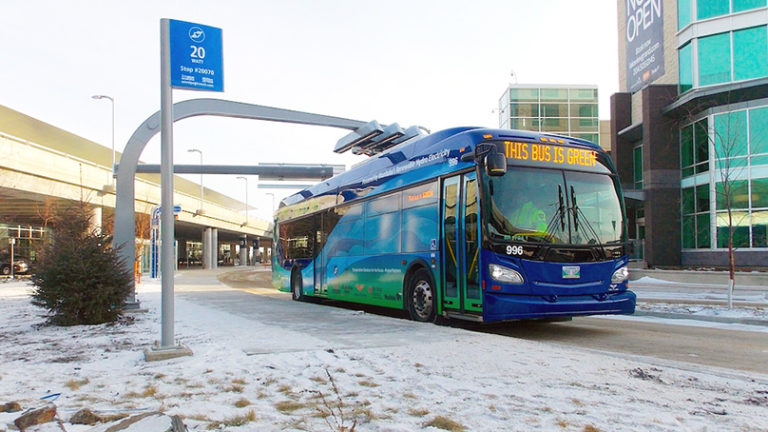Implementation of alternative fuel technologies for public transportation modes stems from increasing environmental concerns, technological improvements, and increasing demand for autonomous transportation, which is well exhibited by recent trends to replace diesel buses with battery electric buses (e-bus). Yet, scheduling, and operational planning of electric vehicle (EV)-based transit modes is challenging due to additional considerations for energy consumption models and driving modes. In this project, a holistic scheduling and optimization modelling tool is developed for battery and fuel-cell operated e-bus transit. For a given timetable and charging constraints at the depot or on-route location, the best charging strategy is identified that minimizes the infrastructure investment and operating cost. Further, the charging schedule aims to optimize the depot load by ensuring to spread out the charging demand over longer periods to avoid load peaks that contributes to higher infrastructure requirement. Based on a clearly defined objective function and constraints, heuristic and/or non-heuristic optimization techniques are used to solve the scheduling problem. Finally, a sensitivity analysis is performed over service headway (or service frequency) to provide policy recommendations to transit agencies on how to minimally, modify the existing schedule of bus transit to accommodate the energy requirements of battery-electric buses in operation.
